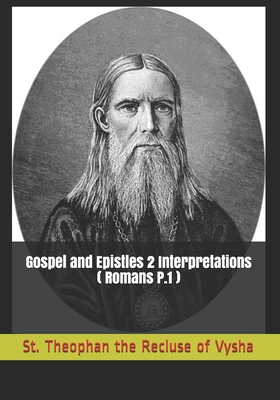Gospel and Epistles 2 Interpretations (Romans P.1)
So, when the holy Apostle speaks of a believer "that justifieth the ungodly", - not of another, but of this believer himself - it makes it clear that this believer has ceased to be wicked at the same time as he believed. Who exactly does the Apostle understand here? He who has been ungodly, but, having accepted faith, has turned away from ungodliness and has always laid down after this to preach. God accepts such a convert with gracious Father's arms, as portrayed in the parable of the prodigal; for the sake of faith, his former ungodliness forgets and forsakes this faith instead of all the deeds of the righteous, which he should have shown all the time of his wickedness: faith alone at this moment replaces all truth. So, faith suppresses all past wickedness and covers it, makes it as if non-existent and through this attracts the imputation of truth. But if it suppresses ungodliness, then, the believer, in essence of faith, from the moment of acceptance of faith ceases to be ungodly and begins to preach, that is, he becomes right in the heart....It is very embarrassing to see oneself among the called ones and think: well, did I accidentally fall into the number of called ones and do not belong at all to the called ones? ... Are we called because we are predestinated?
Format:Paperback
Language:English
ISBN:B087L2ZMVX
ISBN13:9798639983429
Release Date:April 2020
Publisher:Independently published
Length:490 Pages
Weight:2.31 lbs.
Dimensions:10.0" x 1.1" x 7.0"
Customer Reviews
0 rating





